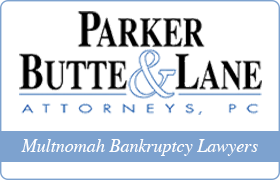Portland Bankruptcy & Debt Lawyer, Oregon, page 2
Sponsored Law Firm
-
 x
x

Click For More Info:
Parker, Butte & Lane
-
Parker Butte & Lane
1336 E Burnside St Ste 200 Portland, OR 97214 » view mapPortland, OR Bankruptcy Lawyer Changing Lives, One Case At A Time
Our attorneys provide complete and personalized representation and counsel for corporate and nonprofit clients as well as for individuals.
800-811-9561  Richard J. Parker Portland, OR
Richard J. Parker Portland, ORAttorney At Law - OR, 1980
Golden Gate University School of Law
Nicholas James Henderson
Litigation, Civil Rights, Corporate, Collection
Status: In Good Standing Licensed: 17 Years
Troy G Sexton
Foreclosure, Civil Rights, Corporate, Collection
Status: In Good Standing Licensed: 13 Years
Tanith Leigh Balaban
Internet, Litigation, Commercial Bankruptcy
Status: In Good Standing Licensed: 16 Years
Sara A. H. Sayles
Land Use & Zoning, Commercial Real Estate, Permits, Bankruptcy
Status: In Good Standing Licensed: 16 Years
Tara J Schleicher
Lawsuit & Dispute, Estate, Bankruptcy, Bankruptcy & Debt
Status: In Good Standing Licensed: 29 Years
James F Ambrose
Gift Taxation, Criminal, Corporate, Bankruptcy
Status: In Good Standing Licensed: 46 Years
Jason M Ayres
Litigation, Credit & Debt, Collection, Bankruptcy
Status: In Good Standing Licensed: 24 Years


 Richard J. Parker Portland, OR
Richard J. Parker Portland, OR
